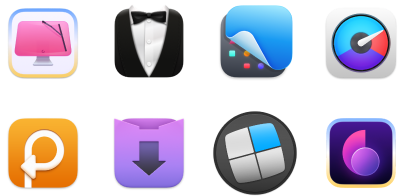Easy ways to improve your writing skills
Looking for the easiest way to improve your writing skills? If the answer is yes, we've got you covered! If you're someone who struggles when it comes to organizing your thoughts, or you just want to write better blog posts or essays, we're going to share a bunch of easy writing tips to help you become a better writer. You'll also get a list of AI writing tools that will help streamline your writing process and enhance your skills.
How to improve on writing
So if you're ready to supercharge your writing skills, here are some tips to get you started.
1. Review grammar basics
Going back to the basics can help you improve your writing. You can feel more comfortable if you know how to form complete sentences, choose correct words like "their," "they're," and "there," and know when to use a comma. So look for free online resources to brush up on your grammar skills.
2. Read like it's your job
The best writers are also avid readers. As you can guess, reading regularly is a good way to develop your writing skills. Here, we're not talking about reading easy blog posts and entertainment. Try to diversify what you're reading. Choose more challenging material than you normally read, pay attention to sentence structure, word choice, and flow.
3. Expand your vocabulary
One of the easiest ways to improve your writing skills is to add new words to your written vocabulary. The more specific and interesting your words, the more engaging and understandable your writing will be. Well, where do you actually start? Reading everything you can get your hands on is one of the most passive and effective ways to build your vocabulary. Whenever you come across a word you don't understand, look it up in a dictionary and take the time to memorize the word and its definition. Another great idea is to make a commitment to learn a new word every day. It's not a particularly challenging goal, but it's one that can make a dramatic difference in your vocabulary.
4. Write regularly
If you want to write better, you need to.. write. Writing regularly will reduce your fear of the blank page and help you develop a unique style. So even if no one reads it, keep writing, because practice makes perfect.
5. Be open to feedback
Feedback is more than just a way to identify errors and mistakes in your writing; it is also a valuable opportunity to learn from others, gain new perspectives, and identify your strengths and areas for improvement. So join a writing community, a workshop, or an online forum where you will receive suggestions from your peers.
6. Use AI writing tools
In addition to sharpening your skills through practice, we recommend you use AI writing tools to further improve your writing. They can help with grammar and spelling, suggest alternative phrasing, improve readability, and even generate content ideas. But be sure not to overdo it.
We'll show you a few AI apps that we like.
Top tools that will improve your writing
In today's digital world, utilizing AI-powered writing assistants has become commonplace to increase productivity and achieve better results. They can be particularly useful if you don't know where to start. AI apps can create outlines for you, suggest titles, write social media posts, essays, articles, fix grammar mistakes, and much more.
So here's our list of nine writer helpers to improve your writing:
1. Ulysses
Ulysses is a great app designed to simplify and improve your writing journey. Loved by writers, journalists, and bloggers, it stands out for its user-friendly interface and wide range of useful features. For example, the app offers a built-in writing prompt feature, providing a collection of creative ideas to overcome writer's block and ignite your imagination. You can also check grammar and style in more than twenty languages.
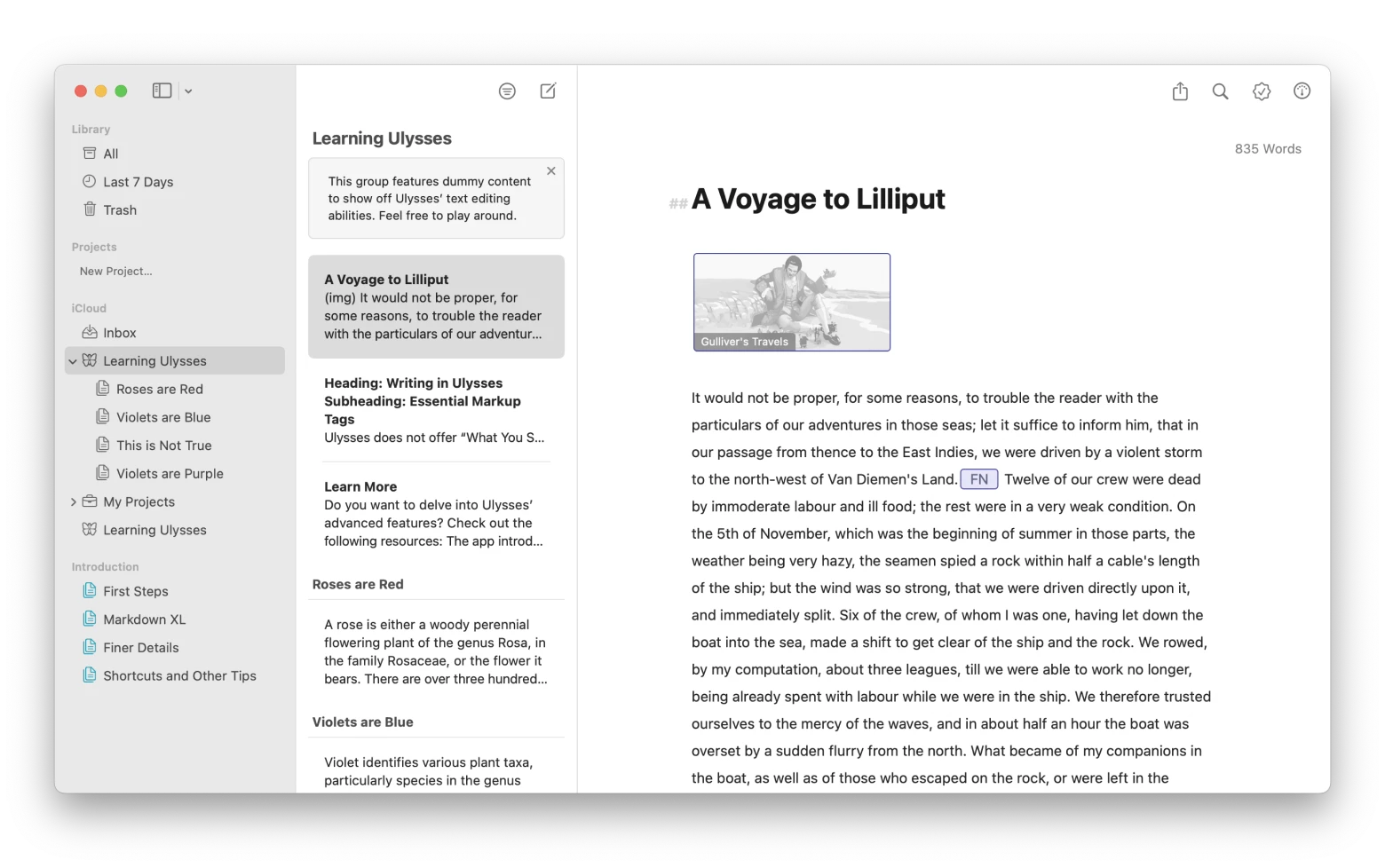
2. Craft
Craft, a powerful app for creating visually appealing and well-organized documents, includes an AI writing assistant that offers many benefits to writers. By using the assistant, you can increase your writing speed and streamline your writing process. Our favorite things about Craft are intelligent suggestions that help overcome writer's block. For example, you can give a topic and ask Craft to write an article. Wait a moment, and it's ready! Craft will also proof your text and detect grammatical and spelling errors. It also includes a handy language translation feature.
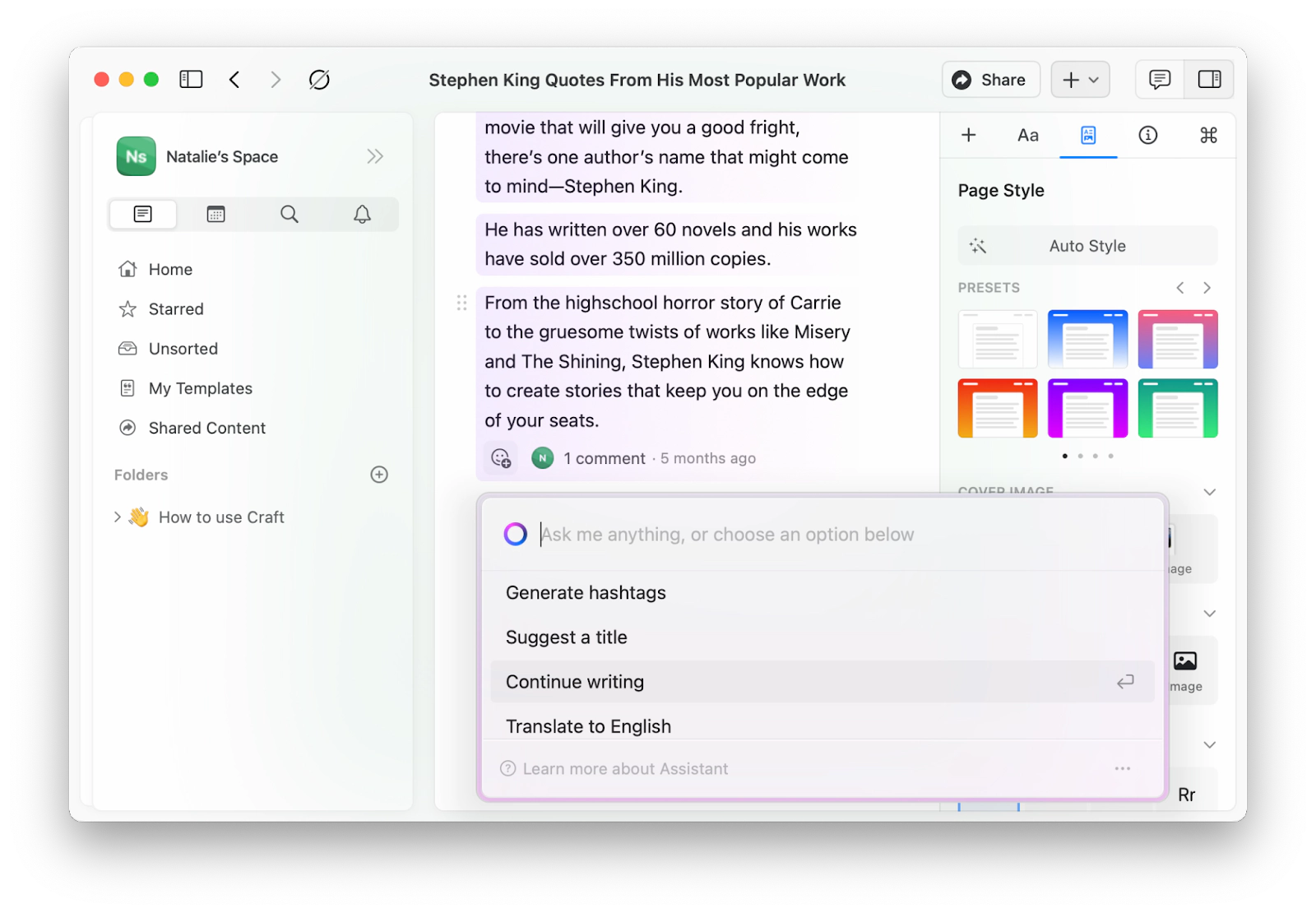
3. Grammarly
Grammarly empowers writers to focus on storytelling by freeing them from grammar and syntax concerns. Beyond its widely recognized grammar check, this versatile tool offers many valuable features, including error detection, writing style improvement, tone analysis, plagiarism checking, synonym suggestions, and customizable settings. The best part: it integrates seamlessly with popular writing platforms, such as Microsoft Word, Google Docs, and Scrivener, streamlining the writing process and increasing productivity for writers in a variety of contexts. Grammarly now helps you with composition and ideation – not just revision. Check out GrammarlyGO, an on-demand, context-aware assistant powered by generative AI.
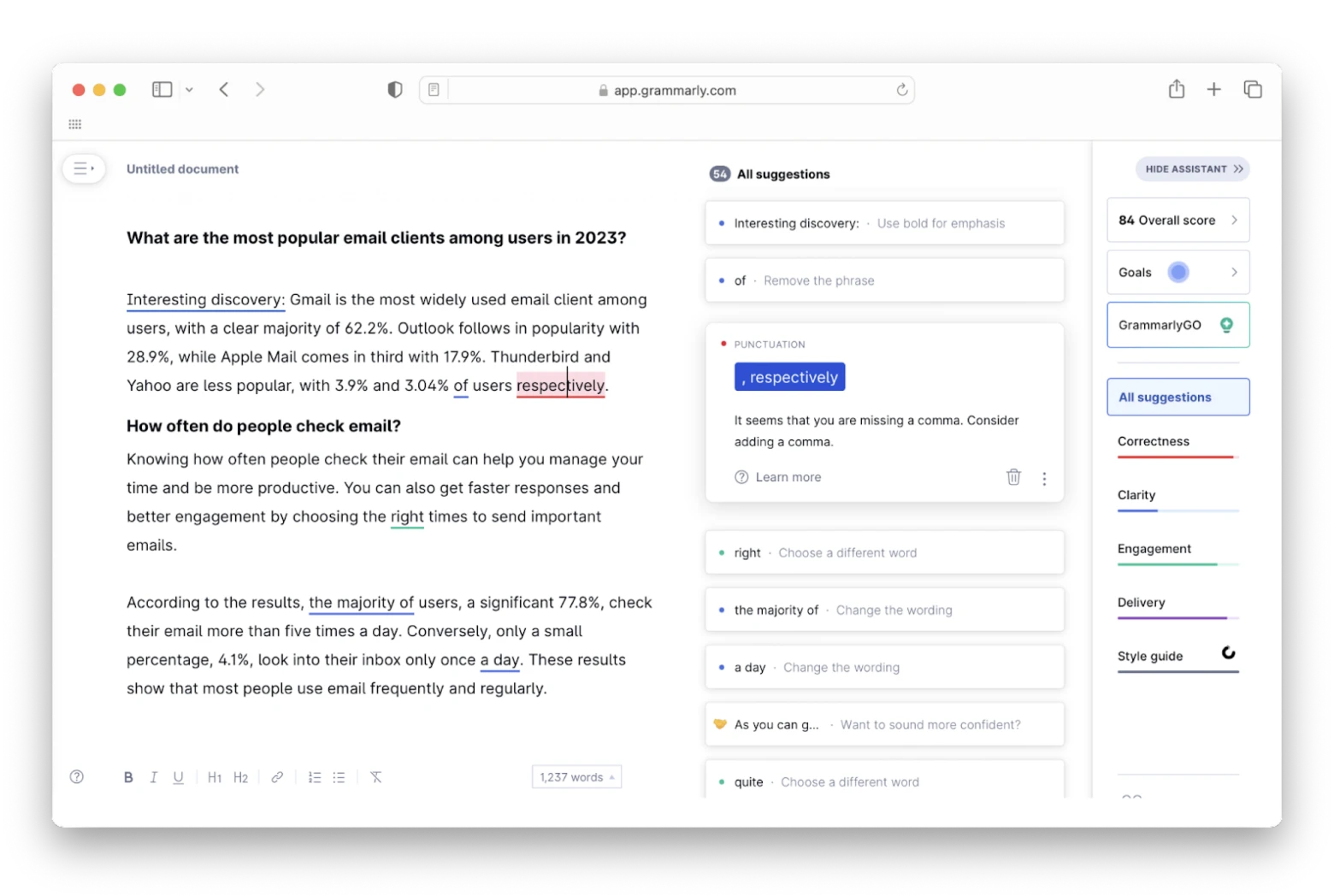
4. TypingMind
TypingMind is an Al chat assistant designed to help with various tasks, such as content ideas generation, search for information, etc. A notable feature of TypingMind is its ability to search chat history, which makes it easy for users to quickly retrieve information from previous conversations. What we like the most is the ability to choose a character that answers your questions/writes the text. For example, you can ask the nutritionist to tell you about vegan vitamin D3. As a result, you'll get a copy written in an informative, professional, and authoritative tone. However, if you choose a standup comic, you'll see something humorous, witty, and light-hearted. We find it an interesting feature that help on writing in various styles.

5. Elephas
Elephas is an app that creates an AI layer to seamlessly interact with your existing apps, eliminating the need to switch between different windows while working. Let's take a look at the app's main features. Smart Write assists in crafting various documents, from emails to white papers. The Rewrite feature offers five modes, such as Zinsser, Friendly, Professional, Persuasive, and Viral, catering to different writing tones and styles. Additionally, the Continue Writing feature allows users to start a piece of content and let Elephas complete it, and Custom Snippets enable personalized AI tasks for recurring content, ensuring an efficient and powerful writing experience.
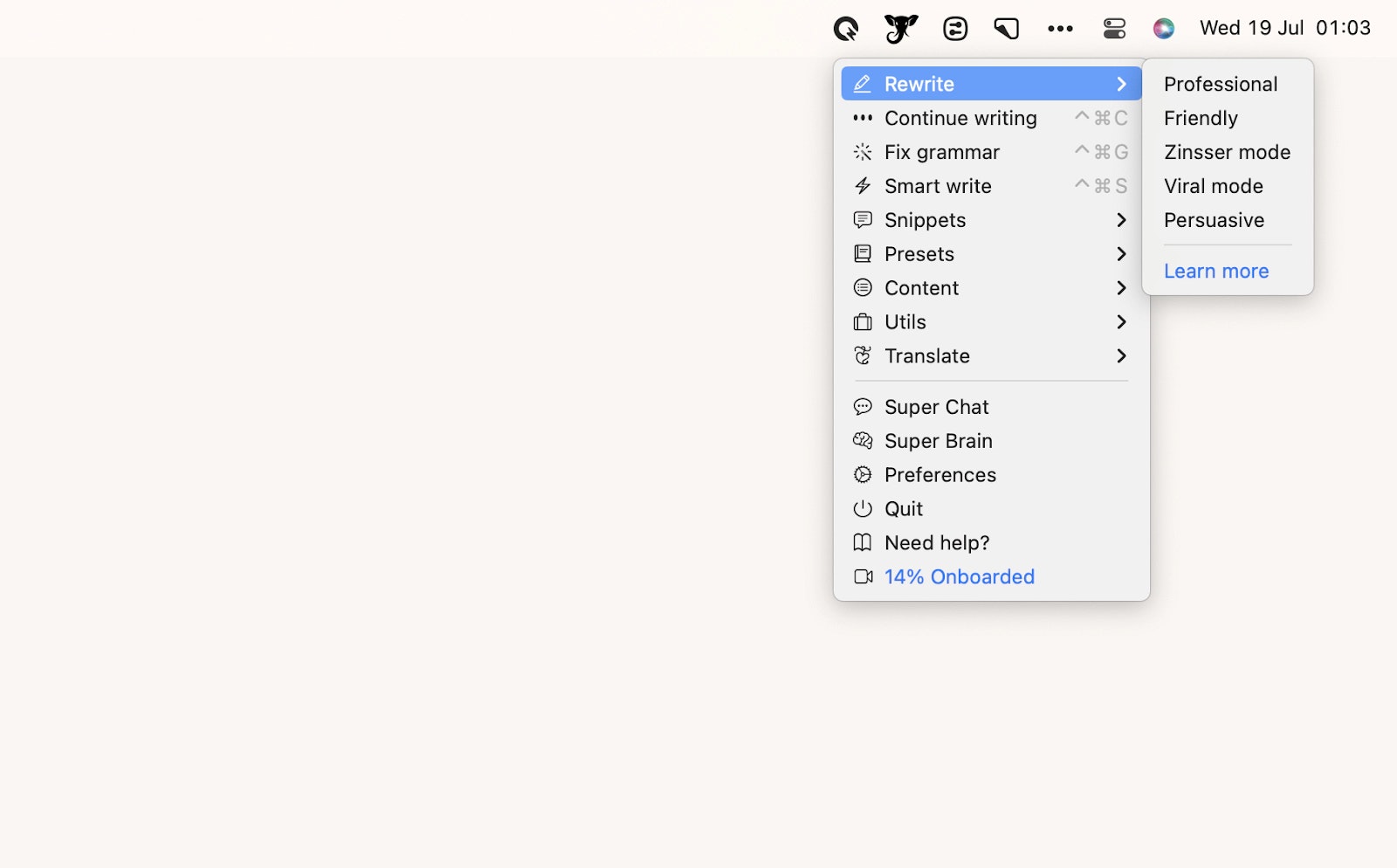
6. Hemingway
The Hemingway Editor is a tool designed to help you write in a clearer and more concise manner. It highlights areas of your text that are difficult to read and offers suggestions for improvement. Many copywriters and bloggers use Hemingway Editor to improve their copy. The app is suitable for both business and creative writing.
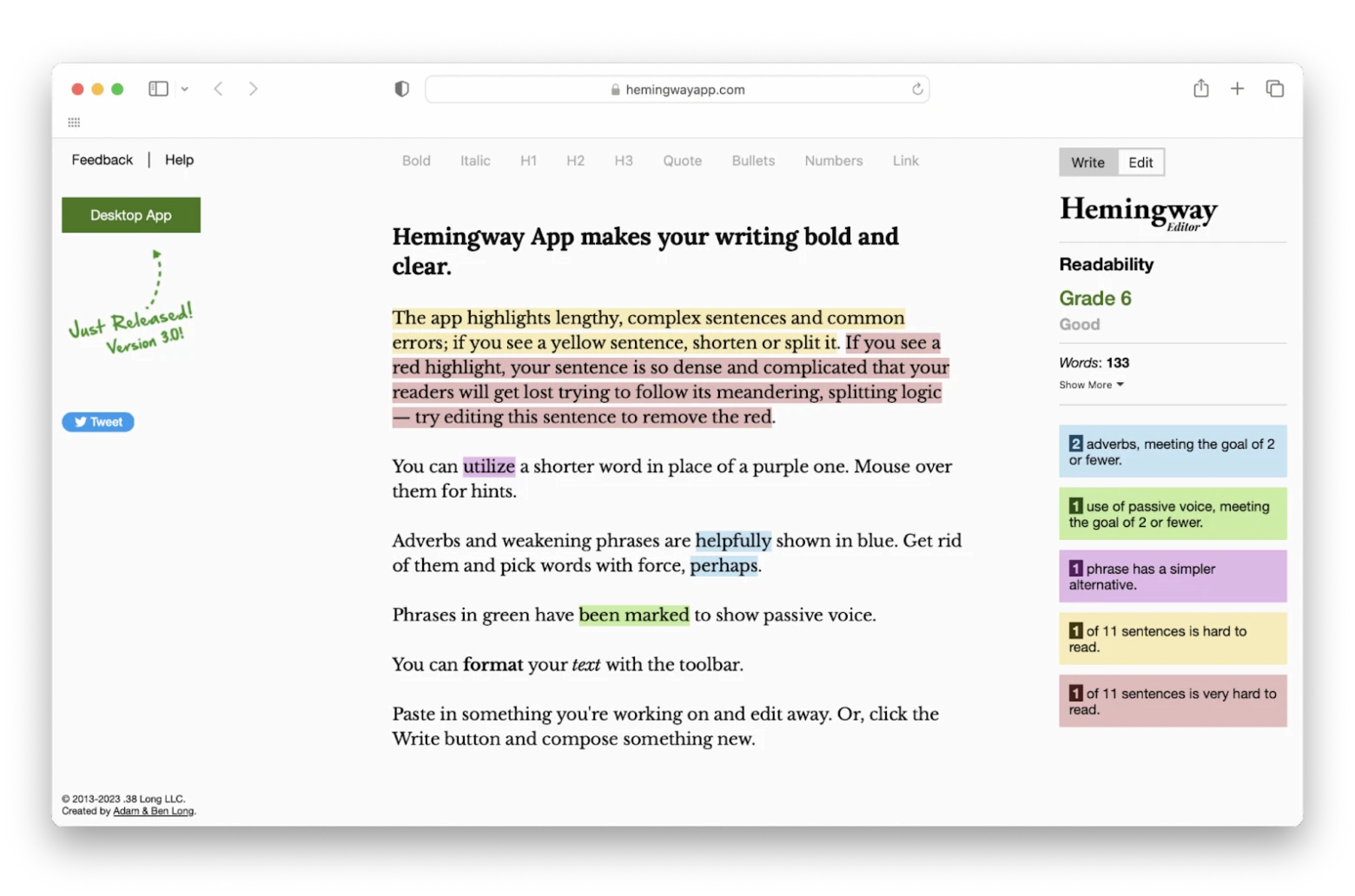
7. KeyKey Typing Tutor
This app will not help you polish your copy to impress thousands of people with it. And all because it has a different purpose. KeyKey is one of the tools to learn touch typing without making many mistakes. You can try it to increase your typing speed and improve typing skills.
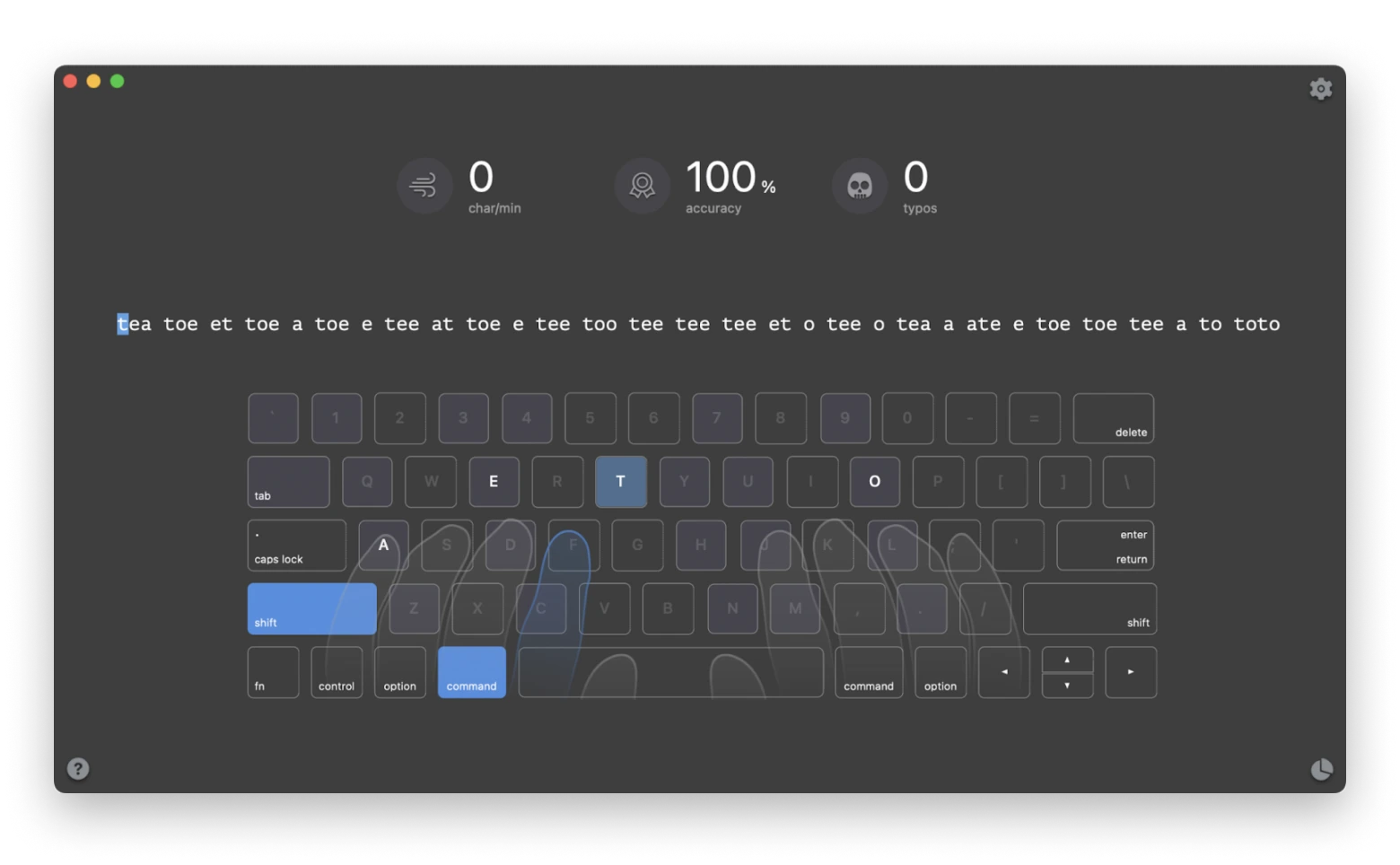
8. Diarly
Diarly is more than just a writing app for work or study; it's a powerful tool for personal growth and development. With the help of AI, you can easily jot down your thoughts and experiences, fostering self-reflection and capturing life's significant moments. What we like the most is that Diarly offers some questions or suggestions about what to write about, helping you reduce the initial resistance to a blank page. Its AI assistant also helps you find answers to your questions.
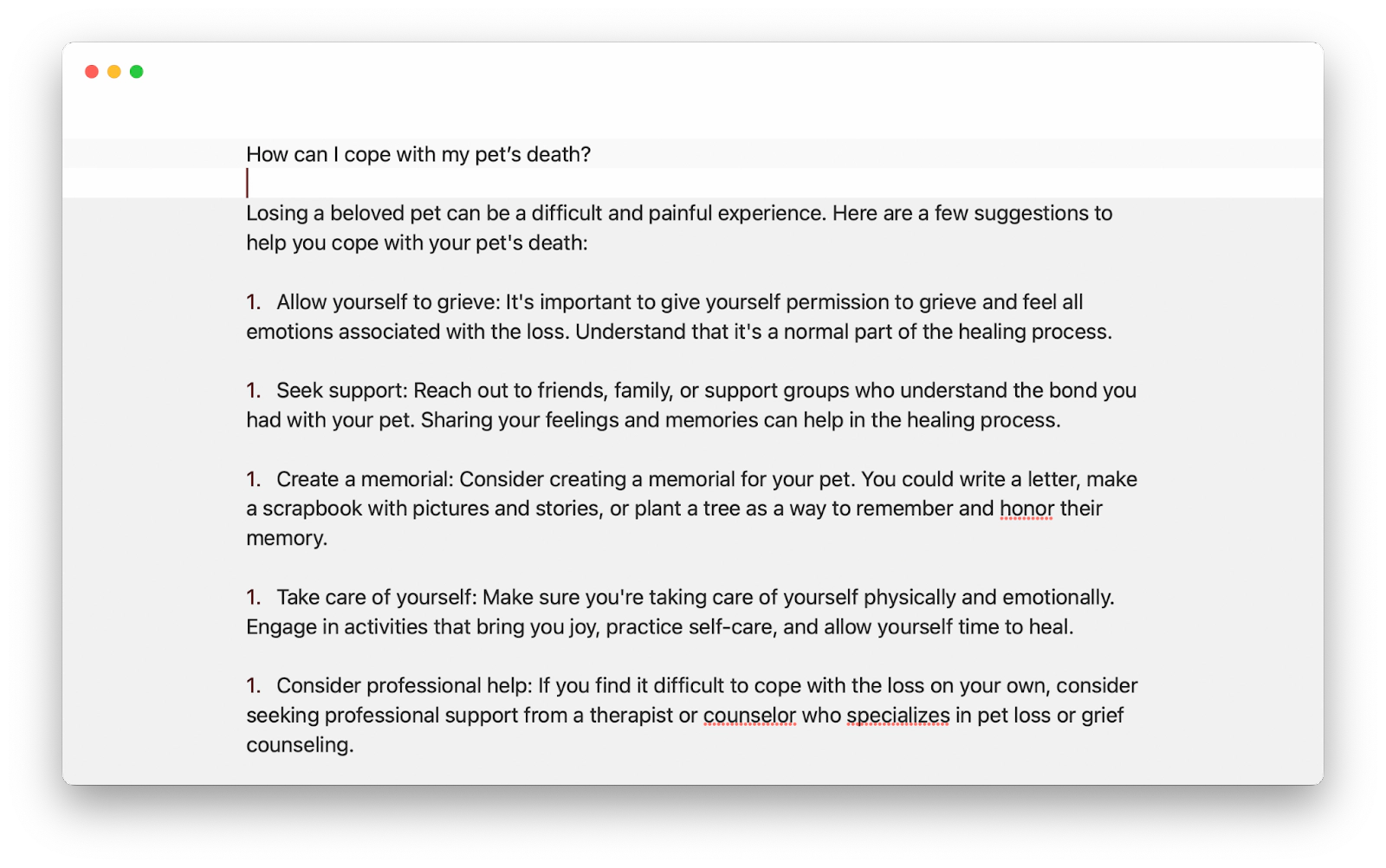
9. Plus
Plus is the perfect choice when you need to quickly rewrite your text and fix spelling and grammar. Just select the text in any app, press Option + Space, and Plus will provide you with quick AI help.
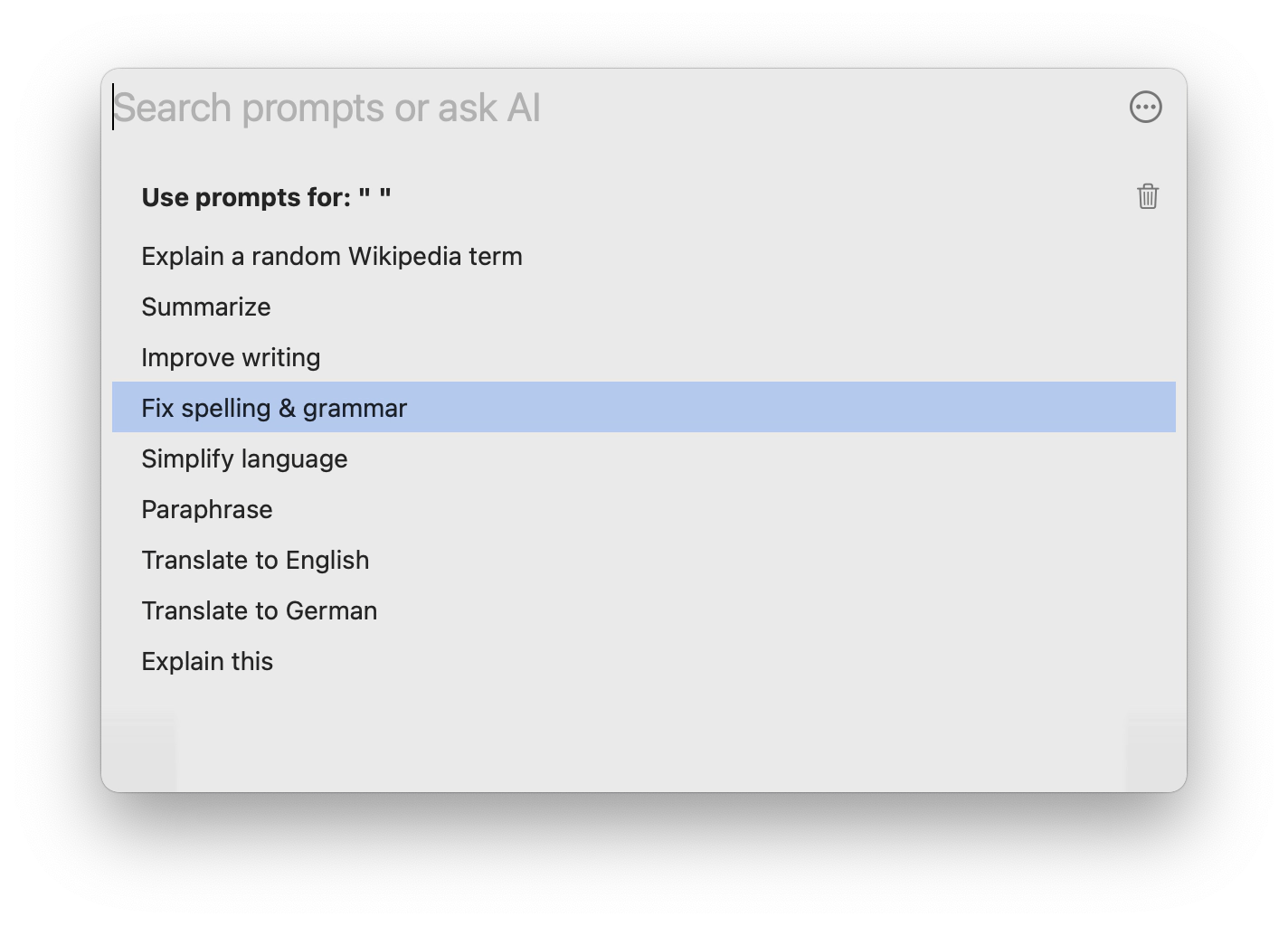
How to write better: Common mistakes and problems
Even when you have advanced AI copywriting software at hand, you should pay attention to details and check your copy thoroughly. Here are some common mistakes people make when writing. Avoid them to ensure your copy is polished and professional.
1. Lack of research
Before you write a single word, you need to research the topic you're writing about. Gathering current and accurate information is an important part of writing, and the process can help you figure out what content to include. Depending on what you're writing about, research may involve learning about your audience, evaluating sources for strength and credibility, talking to experts, reviewing and analyzing data, etc.
Tip: When you need to create an outline for a future copy or organize a hierarchy of facts, evidence, sources, etc., consider using Bike. It's a note-taking app for tree-structured text. Makes organizing content so much easier!
2. No story, no focus
Think of everything you write as a story. Stories have a beginning, a middle, and an end. Even the most basic emails follow the same structure when you break them down. So every piece of content you write must tell a story to be engaging. When writing, answer questions, such as who, what, when, where, why, and how.
3. Lack of structure
Well-structured copy flows smoothly and guides readers effortlessly through your message. Use headings, subheadings, and bullet points to break up your content and make it easier to digest. Create a logical flow that takes readers from one point to the next, ensuring a seamless reading experience.
4. Overly complicated language
You may alienate your audience by using complex vocabulary or industry-specific jargon. Try to keep what you write accessible and easy to understand. Remember, clarity and simplicity are the keys to effective communication.
5. The use of the passive voice
Focus on using the active voice as much as possible throughout your content. Active voice helps you make your point more succinctly, while passive voice tends to clutter your sentences.
Here's how you can tell the difference:
Active voice: The subject of your sentence is doing something. For example, "He wrote the press release."
Passive voice: The subject of the sentence is doing something. For example, "The press release was written by Natalie."
While both are grammatically correct, the active voice is concise and clear, while the passive voice is longer, weaker in presentation, and comes across as boring.
6. Redundancy
Redundant phrases or words can make your copy feel bloated and tedious to read. So trim unnecessary content and make sure each sentence adds value and reinforces your message.
7. Inconsistent or unsuitable tone
Keep the tone of your copy consistent and aligned with your brand identity and specific context. Tone shifts can confuse readers and undermine messaging. Think about the emotions you want to evoke and the impression you want to leave on your audience.
8. Insufficient proofreading
Even after you've thoroughly reviewed your copy, it's a good idea to have someone else proofread it. Fresh eyes can catch errors that you may have missed. In addition, reading your copy aloud can help identify awkward phrases and words.
How long does it take to improve writing skills
The timeline for improving writing skills varies from person to person because it depends on several factors, including dedication, frequency of practice, and individual learning pace. While there is no one-size-fits-all answer, consistent effort and a growth mindset are key.
For some, regular practice, focused study, and seeking feedback from others may result in noticeable improvement within a few weeks. For more significant and lasting progress, however, it may take several months of dedication.
Remember that writing is an art that thrives on practice, persistence, and a willingness to learn from mistakes. Embrace each step of the journey. With time and commitment, you'll become a better writer and produce content that engages and resonates with your audience. So don't get discouraged by the process; instead, celebrate each milestone as you grow and evolve in your writing skills.
Wrap-up: Improve your writing skills
Improving your writing skills is a lifelong process, but fortunately, there are apps that can help you along the way. The good news is that many of the tools mentioned in this article (Ulysses, Craft, TypingMind, Elephas, KeyKey, Diarly, and Plus) are part of Setapp. Sign up today and try all the mentioned apps for 7 days free.
| App name | Feature | Platform |
| Ulysses | Checks style and grammar, offers writing prompts | macOS, iOS |
| Craft | Writes various types of content, generates keywords, creates outlines, translates, and much more | macOS, iOS, web |
| Grammarly | Checks grammar, spelling, and punctuation and improves writing style | macOS, iOS, Windows, Android, web, browser extensions |
| TypingMing | Writes text using various characters (journalist, tech writer, life coach, software developer, etc.) | macOS, web |
| Elephas | Writes, rewrites, fixes grammar, translates, has presets and snippets | macOS, iOS |
| Hemingway Editor | Improves writing clarity and conciseness | macOS, Windows, web |
| KeyKey | Improves typing speed | macOS |
| Diarly | Helps with journaling | macOS, iOS |
| Plus | Improves writing, paraphrases, fixes grammar and spelling, translates | macOS |
